Legal with Leah: The questions around data centers
Leah Curtis joins this Legal with Leah to talk about what data centers mean for local communities and how to stay engaged in the development process
Read MoreAgricultural issues have been highlights of the opening weeks of the U.S. Supreme Court. The Sackett v. U.S. EPA case and a case over Proposition 12 in California both have been heard.
It’s a little unusual, but agricultural issues have been highlights of the opening weeks of the U.S. Supreme Court. First was the Sackett v. U.S. EPA case, which is questioning how it is determined when a wetland is covered under the Clean Water Act. Second was a case over Proposition 12 in California, which is a ballot measure banning the sale of certain livestock products that are not raised under certain conditions. Ohio Farm Bureau Policy Counsel Leah Curtis discusses what has been said so far in the arguments for both cases and the role Farm Bureau has played in them.
Listen to Legal with Leah, a podcast featuring Ohio Farm Bureau’s Policy Counsel Leah Curtis discussing topics impacting farmers and landowners.
Ty Higgins: We love talking about Supreme Court cases. A little unusual, but agriculture issues have been highlights of the opening weeks of the U.S. Supreme Court. The court opened its October term just this past week or two with oral arguments in cases that are interested for the agriculture community in particular.
Leah Curtis [00:00:26] So we have had two cases right out of the bat here on the term that have to do with agriculture, which normally I’d be reaching for one probably in the whole term. So very exciting for a nerd like me. We started with Sackett v. U.S. EPA, which was a case looking at how do we determine whether a wetland, particularly an isolated wetland, is covered under the Clean Water Act or is it covered under the Clean Water Act? For those who might be a little bit more familiar, it’s that term of WOTUS. Is this a Water of the United States that gets regulated? And then our second case that we had the very next week was a case over whether Proposition 12 in California, which is their ballot initiative that determines how certain livestock products have to be sold. They can’t be sold in California unless they comply with certain housing requirements. Whether that is a violation of the Commerce Clause because it is applying to livestock products that come from out of state and into California. So lots of interesting legal questions.
Ty Higgins [00:01:26] And Farm Bureau has played a role in both those cases.
Leah Curtis [00:01:29] Yes. So we have filed an amicus brief, amicus curiae that stands for Friend of the Court. It’s Latin. We love our Latin as lawyers. And so we filed with a number of other state Farm Bureaus in both cases to kind of talk about our own perspectives. So those briefs are used by the the justices to fill in what is the effect on everybody else. You only have two parties in front of you. They’re worried about their individual situation. But the Supreme Court is making law for the entire country. They’re considering these questions for the how it’s going to apply to every one of us. So these amicus curiae briefs we are filing kind of help to provide that better, well-rounded information.
Ty Higgins [00:02:14] So now we’ve heard these arguments. What happens next in these two cases?
Leah Curtis [00:02:18] So unfortunately, we’re going to have a lot of waiting. I think a lot of people have asked me in the last week well, when are we going to see the decision. That’s like, well, you might as well cool your heels because it’s going to be a while. The court starts to hear cases in October, they start that first Monday in October, and then they will generally provide opinions by the next June 30th. So their term runs October 1 to June 30. There probably will be some opinions start to be released early next year, January, February, March. Those are probably going to be more of those cases where they’re 9-0, as we say–everybody agreed. So there’s really no telling when the opinion might come out. We might see it in February. It might be March, April, or it may be June 30th, that last day before they leave town.
Ty Higgins [00:03:03] I know it’s kind of reading the tea leaves, but there has been a lot of public interest and people have been able to listen in on these arguments. Based on what you’re reading and what you’re hearing, how do you think these things might turn out?
Leah Curtis [00:03:15] I think it’s really hard to predict what the court’s going to do from an oral argument. I have listened to lots of oral arguments in my 12 or so years as an attorney and some before that when I was in law school. And I think lots of people try to read a lot into those questions that are asked or the amount of questions or the type of question. But the thing is, we as listeners don’t know what their motivation is for that question. They could be asking a question because they agree with that person and they want to make sure they fill in any holes that the other side might might try to exploit. Or they might disagree with that person, and they’re trying to really expand that hole that they have seen or that they have a problem with. Or they might be in the middle and they might be trying to come to a compromise or a middle position that they think could be realistic for everybody. So it’s really hard to predict how things are going to go.
And then the other thing I would say is the Supreme Court is looking to be very precise with their rulings. They want to make sure that when they put something out there, lower courts can use it, citizens understand it and that it makes sense and that it complies with the Constitution. So they’re really getting into very small nuances sometimes that some of us are probably like, why would you ask that question? Well, that’s because they’ve got a bunch of clerks that have done a bunch of research, and they’ve found this one issue that they want to make sure doesn’t become a problem when they issue a ruling.
Ty Higgins [00:04:39] You better believe as soon as this decision is made, my phone’s going to light up with Leah Curtis on it. She’s going to want to talk about this. So we’ll keep you posted as these two court cases progress at the U.S. Supreme Court.


Leah Curtis joins this Legal with Leah to talk about what data centers mean for local communities and how to stay engaged in the development process
Read More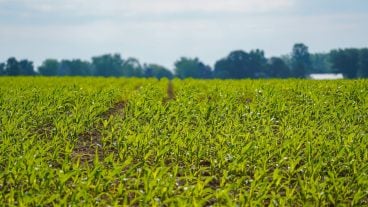
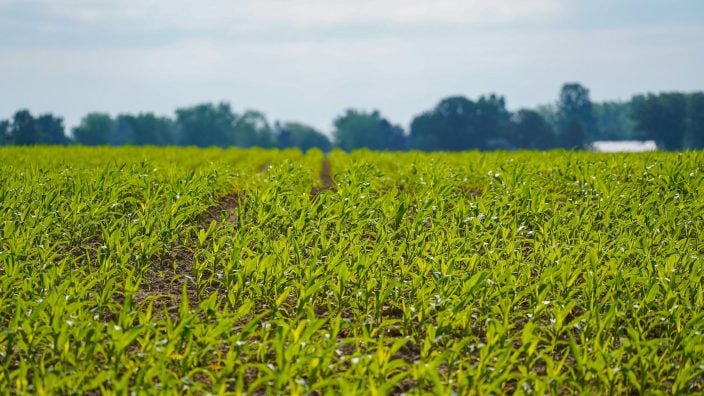
Ohio Farm Bureau advocated for a change in the law to allow family members and employees to handle pesticides while under the supervision of a licensed applicator. The rules around HB 10 are being finalized.
Read More

Four property tax reform bills were signed into Ohio law at the end of 2025. Ohio Farm Bureau Associate General Counsel Leah Curtis breaks down the bills and what the changes mean for Ohioans.
Read More

Learn what the requirements are to legally fly a drone in Ohio as well as steps the Ohio Legislature has taken in terms of security concerns.
Read More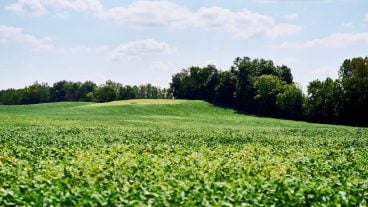

In 2025, about 21 counties are going through a reappraisal or update, and because Ohioans pay taxes one year behind, they will see new property tax bills in January 2026.
Read More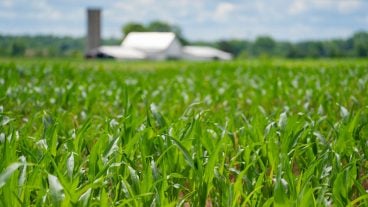
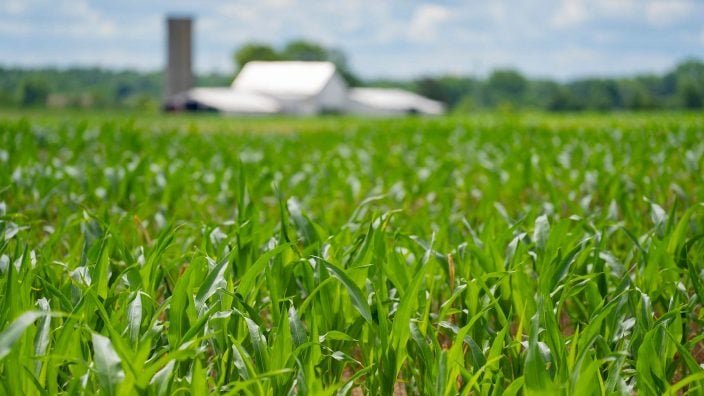
Any unlicensed handlers who use restricted use pesticides will need to have additional training. Farm Bureau will be working on legislation to give employers a choice on how to provide training.
Read More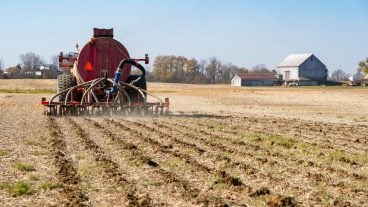
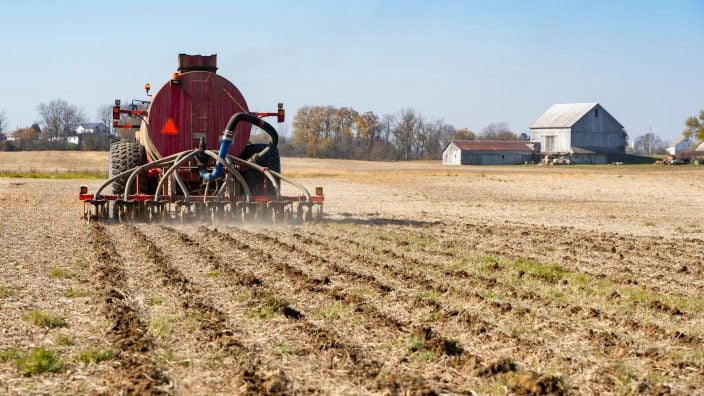
Current Agricultural Use Value is often discussed as a farmland preservation tool, but there are some other tools in the law that landowners can consider.
Read More

Update: As of Feb. 27, 2025, the Financial Crimes Enforcement Network announced no fines, penalties or enforcement action will be taken against companies based on failure to file or update BOI by March 21.
Read More

Update: As of Feb. 27, 2025, the Financial Crimes Enforcement Network announced they would not issue any fines or penalties or take enforcement action against companies based on failure to file or update beneficial ownership information reports by the March 21, 2025, deadline.
Read More

Update: As of Feb. 27, 2025, the Financial Crimes Enforcement Network announced they would not issue any fines or penalties or take enforcement action against companies based on failure to file or update beneficial ownership information reports by the March 21, 2025, deadline.
Read More